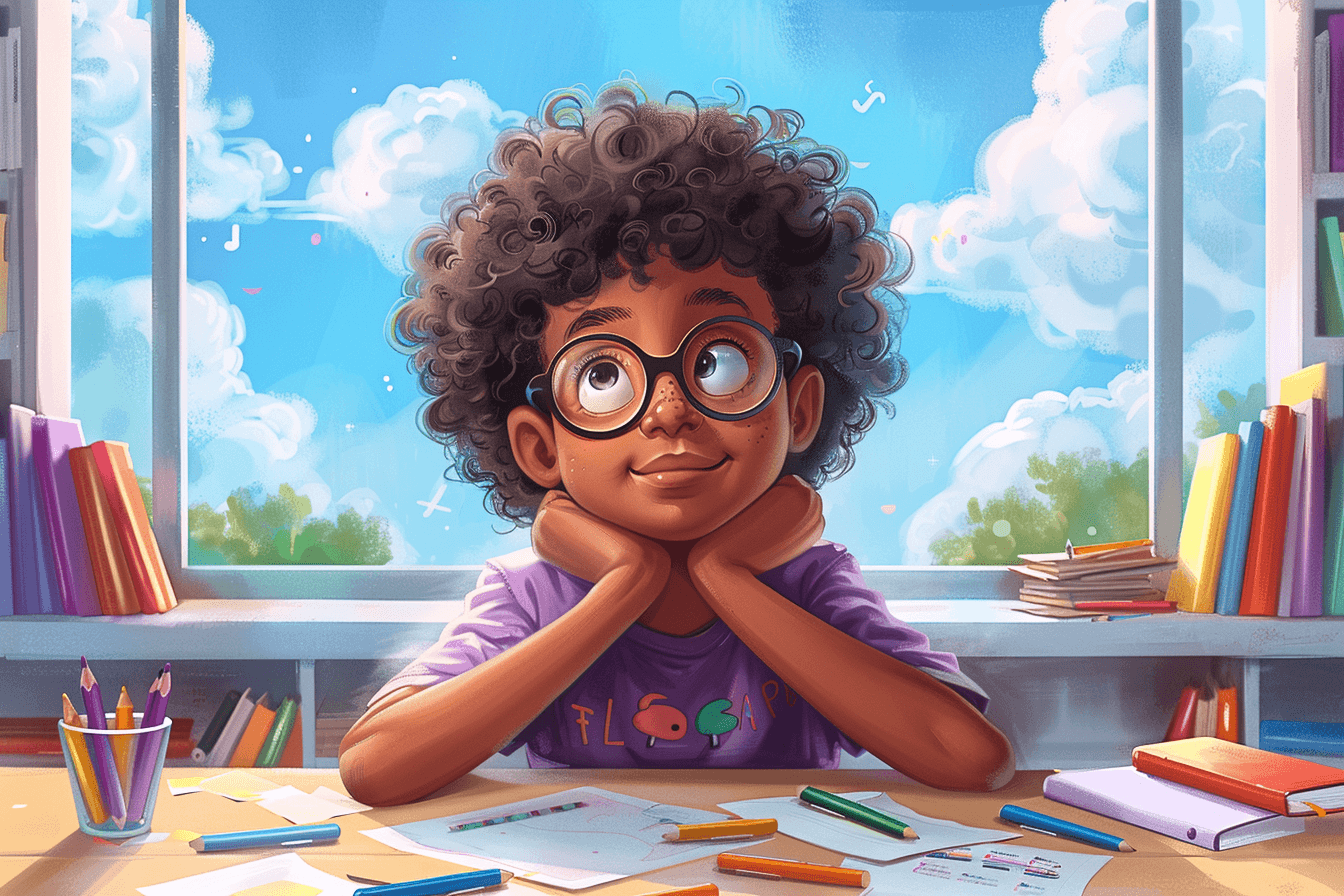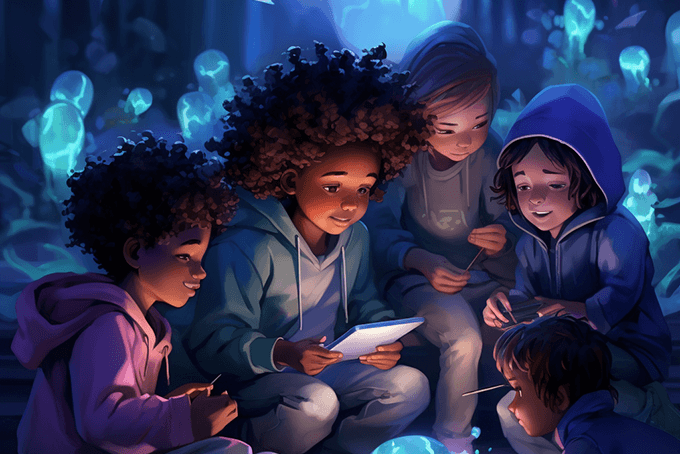Starting preschool is an exciting and important milestone for young children. It marks the beginning of their educational journey and lays the foundation for future learning. To make this transition smooth and enjoyable, it is essential to incorporate fun back to school activities for preschoolers. These activities not only make learning enjoyable but also help in their overall development. In this article, we will explore different types of back to school activities for preschoolers that will keep them engaged and excited about going back to school.
Understanding the Importance of Back to School Activities
Back to school activities play a crucial role in helping preschoolers adjust to the new environment and routine. They provide a structured setting for the little ones to interact with their peers, learn new skills, and develop social and emotional abilities. These activities also serve as a bridge between home and school, helping children feel more comfortable and confident in their new surroundings.
The Role of Activities in Preschool Education
Activities are an integral part of early childhood education. They engage children’s senses and encourage active participation, making learning more meaningful and memorable. Preschool activities stimulate curiosity, creativity, and problem-solving skills. They also promote language development, fine motor skills, and cognitive growth. By integrating activities into the curriculum, teachers ensure that children are actively involved in the learning process, fueling their love for learning.
Benefits of Fun Learning Activities for Preschoolers
Fun learning activities offer numerous benefits to preschoolers. They enhance their cognitive abilities by promoting critical thinking and problem-solving skills. Activities that involve sorting, matching, and categorizing help develop their logical reasoning skills. Additionally, these activities provide opportunities for preschoolers to enhance their communication and language skills as they interact with their peers.
Engaging in fun activities also helps preschoolers develop their fine motor skills, hand-eye coordination, and concentration. Whether it’s painting, building blocks, or stringing beads, these activities improve their ability to control their movements and develop dexterity.
Furthermore, back to school activities create a sense of excitement and anticipation among preschoolers. The opportunity to participate in new and engaging activities ignites their curiosity and eagerness to learn. From sensory exploration to arts and crafts, these activities provide a platform for children to express themselves creatively and develop their unique talents.
Moreover, back to school activities foster a sense of community and belonging among preschoolers. Through collaborative projects and group activities, children learn the value of teamwork, cooperation, and respect for others. They develop social skills such as sharing, taking turns, and listening to others’ ideas. These activities create a positive and inclusive environment where every child feels valued and accepted.
Creative Art and Craft Activities
Art and craft activities are a fantastic way to foster creativity and self-expression in preschoolers. They allow children to explore different materials, textures, and colors, giving them the freedom to create and experiment. Here are some easy DIY craft ideas for preschoolers:
Easy DIY Craft Ideas for Preschoolers
- Create a collage using old magazines, colored paper, and glue.
- Make handprint or footprint art using washable paint.
- Build a city using recycled cardboard boxes and markers.
- Create a sensory bottle using water, glitter, and small objects.
- Decorate and personalize a picture frame using stickers, markers, and paint.
These simple craft ideas not only ignite children’s imagination but also encourage fine motor skills and hand-eye coordination.
Incorporating Art into Learning
Art can be seamlessly integrated into various areas of learning, making it a powerful tool for preschool education. For instance, during storybook time, children can create their own illustrations related to the story they just listened to. This activity not only helps them engage with the narrative but also enhances their storytelling abilities and visual thinking.
Incorporating art into learning math concepts can also be highly effective. Preschoolers can count and sort colorful objects like buttons or beads. This hands-on activity not only helps them understand numbers but also reinforces their fine motor skills.
Furthermore, art can also be used to teach science concepts to preschoolers. For example, children can explore the concept of color mixing by conducting simple experiments with paint. By mixing primary colors, they can observe how new colors are created, fostering their understanding of color theory.
In addition to academic subjects, art can also be integrated into teaching social and emotional skills. Through art activities, preschoolers can express their emotions, develop empathy, and practice problem-solving. For instance, they can create a collage that represents different emotions or engage in role-playing activities where they act out various social scenarios.
Moreover, art can be a valuable tool for teaching cultural diversity and appreciation. Preschoolers can explore different art forms from around the world, such as traditional crafts or folk dances. By learning about different cultures through art, children develop a sense of respect and curiosity towards others, promoting inclusivity and global awareness.
Engaging Outdoor Activities
Outdoor activities not only provide children with fresh air and exercise but also offer unique opportunities for exploration and discovery. Here are some engaging outdoor activities for preschoolers:
Exploring nature is a fantastic way for preschoolers to connect with the environment and learn about the world around them. Taking nature walks in local parks or gardens allows children to observe different plants, insects, and animals, fostering a sense of curiosity and appreciation for nature. Encourage them to touch leaves, smell flowers, and listen to the sounds of birds chirping to engage their senses and spark their interest in the natural world.
Promoting Physical Activity and Play
Outdoor games and physical activities are excellent for developing gross motor skills and coordination in preschoolers. Activities like running, jumping, hopping, and throwing improve their balance, strength, and agility. Classic games such as tag, duck-duck-goose, and Simon says never fail to engage children and keep them active.
Engaging in outdoor play also promotes social skills and teamwork among preschoolers. Encouraging them to take turns, share equipment, and work together in games fosters cooperation and communication. These interactions help children develop important social skills that are essential for building relationships and navigating social situations as they grow.
Outdoor Games that Enhance Learning
Outdoor environments create a natural context for learning about the world around us. Incorporating educational elements into outdoor activities can make them even more enriching and meaningful. For example, setting up a scavenger hunt where preschoolers search for specific objects or colors helps develop their observation skills and problem-solving abilities.
Another fun and educational outdoor activity is creating a nature journal. Provide children with notebooks to record their outdoor experiences, such as drawings of plants and animals they encounter, or descriptions of the weather and changes in the environment over time. This activity not only enhances their observation and writing skills but also encourages them to reflect on their outdoor adventures and develop a deeper connection to nature.
Interactive Classroom Games
Classroom games are a fantastic way to make learning enjoyable and engaging for preschoolers. They encourage active participation and promote teamwork and cooperation. Here are some fun and educational classroom games:
Fun and Educational Classroom Games
- Simon Says: This classic game helps preschoolers develop listening skills and follow instructions.
- Letter Bingo: A fun twist to the traditional game of Bingo, where children match letters on their game cards to those called out by the teacher.
- Counting Rhymes: Singing counting rhymes like “Five Little Ducks” or “Five Little Monkeys” promotes number recognition and early math skills.
These interactive games not only make learning enjoyable but also reinforce important concepts and skills.
Promoting Teamwork through Group Games
Group games provide opportunities for preschoolers to develop social skills, cooperation, and teamwork. Games like “Musical Chairs” or “Pass the Parcel” require children to work together and take turns, fostering a sense of belonging and camaraderie. These games also teach preschoolers important life skills such as following rules, respecting others, and managing emotions.
Moreover, group games can also enhance communication skills among preschoolers. Games that involve verbal interaction, such as “Telephone” or “Storytelling Circle,” encourage children to express their thoughts and ideas clearly to others. This not only boosts their confidence but also improves their ability to articulate their thoughts effectively.
Furthermore, group games can be a great way to introduce cultural diversity and inclusivity in the classroom. Games that incorporate elements from different cultures or traditions help children learn about and appreciate various backgrounds. This fosters a sense of empathy and understanding towards others, promoting a harmonious and respectful classroom environment.
Incorporating Music and Dance
Music and dance provide preschoolers with a creative outlet for self-expression and can have a profound impact on their overall development. Here’s how:
The Role of Music in Early Childhood Development
Music stimulates various areas of the brain, enhancing children’s cognitive abilities, language development, and memory. Singing songs or listening to music helps preschoolers improve their vocabulary, rhythm, and pronunciation. They also learn about different cultures and traditions through music, fostering a sense of diversity and inclusion.
Fun Dance Routines for Preschoolers
Dancing not only boosts physical coordination but also helps preschoolers develop their listening skills, concentration, and creativity. Simple dance routines like “The Hokey Pokey” or “The Chicken Dance” are popular choices that engage and entertain children while encouraging movement and coordination.
As we can see, incorporating fun back to school activities for preschoolers is crucial for their overall development and love for learning. By integrating creative art and craft activities, engaging outdoor games, interactive classroom games, and introducing music and dance, we can make the transition to school a joyous and enriching experience for our little ones. So, let’s embrace these activities and create a welcoming and exciting environment for our preschoolers as they embark on their educational journey. Find more ideas here.
You might be interested:



